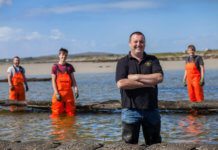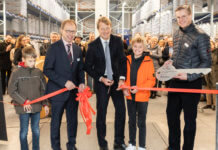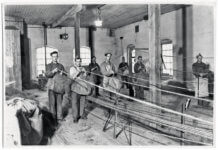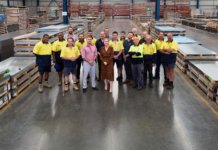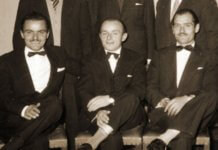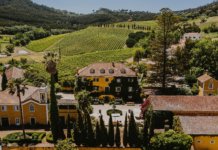Walk into any Café Martínez location around the world, and the first thing you will notice besides the inebriating aroma of artisanal roasted South American coffee is a palpable sense of “home”. Customer-oriented spaces rife with warm colours and comfortable materials, Café Martínez are designed as gathering places where people can relax.
The franchise reflects the values and culture of its founder Atilano Martínez, a refugee who fled the Spanish Civil War with one goal in mind – a better future for his family.
Atilano boarded a ship with his pregnant wife Justa in 1933 unsure of their ultimate destination. They landed in Argentina, where he found work at a coffee roaster. Here, Atilano Martínez discovered the caffeinated beverage’s inimitable power of bringing people together.
Soon, Martínez began wholesaling his own coffee from a storefront location. Years later, when it came time to hand over the reins of the business, three of his grandchildren – Mauro, Marcelo and Claudia – initiated the incredible transition from a coffee wholesaler to a chain of franchised cafes.
Today there are more than 170 Café Martínez in Argentina, Paraguay, Bolivia, Uruguay, Spain and the United States. The Martínez family continues its remarkable growth on a global scale while maintaining a commitment to the culture and values of its founder.
Tharawat Magazine had the opportunity to sit down with Claudia Salas Martínez to discuss her grandfather’s remarkable journey, her entrance into the family business and the challenges of transitioning to an international B2C model.

Most international cafe franchises start with a global vision in mind. The Martínez story is very different. How did your family enter the coffee business?
Our family business story is a love story. My grandparents grew up in the north of Spain and fell in love when she was fifteen and he was twenty. My grandmother became pregnant and, with the outbreak of war, my grandfather knew they had to leave.
Without knowing where they were headed, they boarded a ship and ended up in Argentina. My grandfather needed a job, so he found employment working as a coffee roaster.
He fell in love with coffee right away. He saw people chatting over coffee as if they were at home. He also noticed that coffee consumption is a necessity for many.
Moved to start his own business, he began selling coffee on his bicycle after work and eventually went into wholesaling his own beans. My grandparents’ home, where they also roasted coffee, burnt down and left them homeless more than once, but they persisted.
In time, they realised that people wanted a place to sit and sample different coffees. So, they built the first Café Martínez, which served as both a coffee wholesaler and a cafe.
“In time, they realised that people wanted a place to sit and sample different coffees. So, they built the first Café Martínez, which served as both a coffee wholesaler and a cafe.”
Did you always know that one day you would join the family business?
I actually studied psychology, following in my parents’ footsteps. My father was a child psychiatrist, and my mother studied psychology as well. We like to say that our family lives off coffee and psychoanalysis.
My parents never worked in the business themselves. Until our generation got involved, my grandfather and grandmother ran the company.
When my brothers and I joined, our mother was incredibly supportive. She was always very optimistic, even in the bleakest situations. She believes in our capabilities. We still go to her for advice, and always ask if she agrees with what we’re doing.

How did the company transform when your generation took over?
I started out doing everything with my brothers, from roasting to distributing coffee. As I also have a background in architecture, I decorated the cafes to make them look a little more ‘homey’, an integral facet of our branding. I wanted to recreate my grandparents’ initial vision – a cosy place for people to connect over coffee. I chose materials like wood and brick and used warm colours.
We had plenty of loyal customers, but we realised they wanted something more. They wished to try different coffees, so we added a tasting bar. That led to the idea of launching our own coffee shop where we could sell hot beverages along with croissants and sandwiches.
In 1995, we opened five locations, and from there, everything just took off. Up to that point, we had always interacted with our customers as friends because there were regulars who came in every day to buy their coffee in my grandfather’s time. As we grew, we eventually lost that sense of proximity. With five stores, we could not be there in person every day. However, we strive to maintain the friendly atmosphere that defined our grandfather’s store. One of our clients fell in love with the brand and asked to open a store himself. We were intrigued by the idea of franchising and started that process in 2000.
How important do you believe being a family business is to your brand?
I think people trust us for that very reason. They identify with us – many of them are familiar with our story. They know it’s not just a marketing strategy.
The same is true of our franchisees. They all know our core values and how to translate them into everyday operations.
How do you and your siblings handle communication within the family business?
There are six of us in total, but only three are directly involved with the management of the company. We sit on the board together and lead our own extraordinary teams.
My brother Marcelo is involved in public relations and has an incredible marketing communications team in place. My brother Mauro looks after finance and import/export. I am in charge of product and design.
We communicate well and see each other in person almost every day. Two managers, Leandro Canabe and Cristian Lema, act as our right hands relaying vital information to all the departments. And our mother, who is now 87, still supports and helps us.
[ms-protect-content id=”4069,4129″]
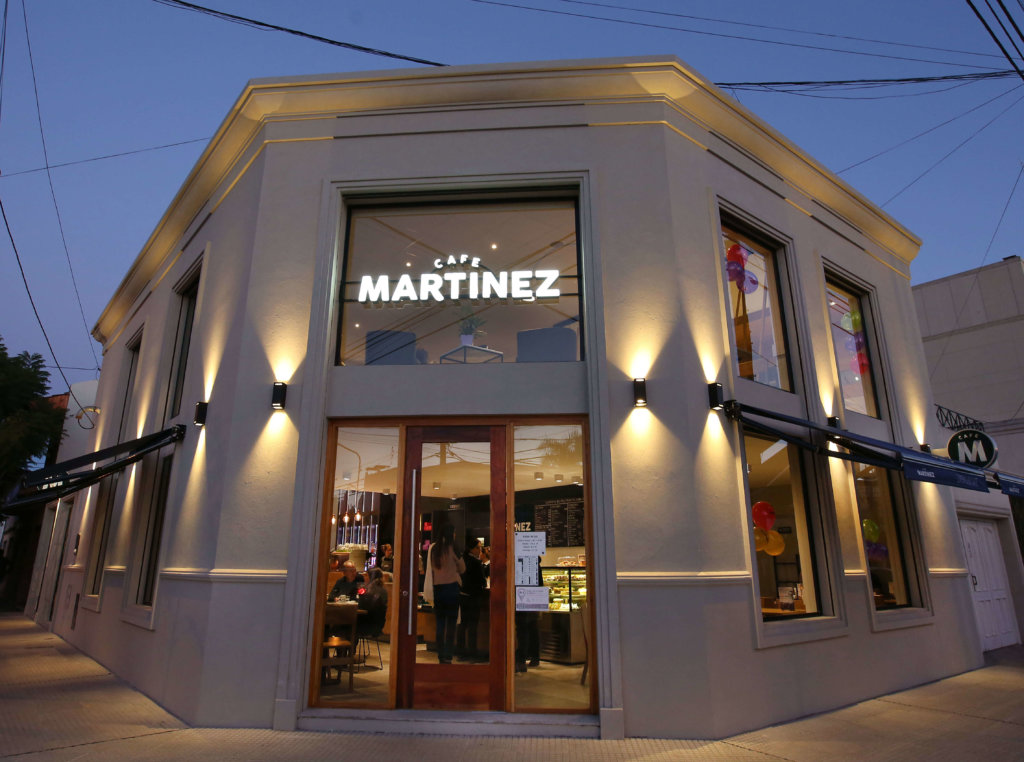
What do you see as the most significant challenge for Café Martínez as you continue the process of internationalisation?
I’ll begin by saying, one thing will never change. That is that coffee flows in our veins. It’s like riding a bicycle – once you learn it, you can never forget it.
Our most significant challenge lies in ensuring brand continuity. However, we learned a great deal from expanding across Argentina and will use that model going forward internationally. For example, we know that teams of supervisors supporting our franchisees with regular visits will go a long way in maintaining our vision and core values.
We also have ‘mistery shoppers’ who go into cafes and report back to us. When we established a store in Murcia, Spain, we saw the same morale, the same ethic and a considerable amount of passion for what we do. It seems simple, but for us, this is the most important thing. If these qualities are present, success will follow.
One thing will never change. That is that coffee flows in our veins. It’s like riding a bicycle – once you learn it, you can never forget it.
Cafes are not generally thought of as tech-centric businesses. How is today’s technology essential to your operations?
It’s more important than many people realise. We have an in-house IT department with six people looking after support tasks as well as the administration of servers and platforms.
Recently, we installed a cloud-based integrated system in many of our locations that can harmonise administration, production and logistics. The data is then analysed and made available to all departments within the company through a dashboard. We also utilise a platform that manages all B2B and B2C contact channels.
As much as we embrace technology, we wish to help people do their jobs rather than replacing them entirely. When someone makes a coffee and decorates the foam, it is a personal touch that can’t be replicated mechanically. We use technology to support us but are careful not to compromise the humanity that unites us.
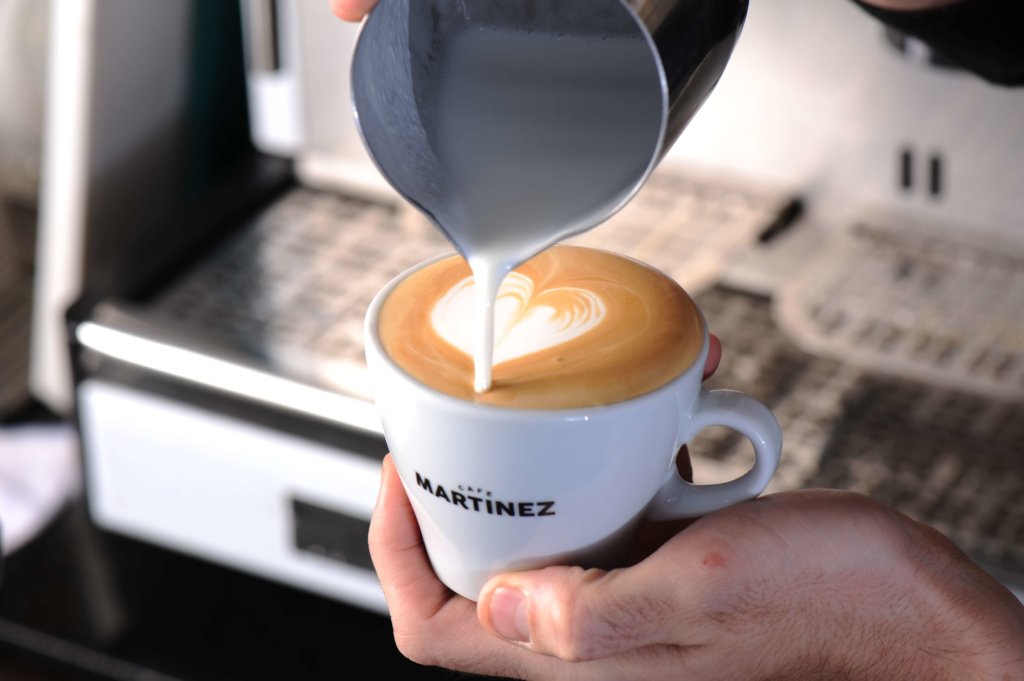
How has the role of women in the family business evolved, not only in Café Martínez but in Argentina in general?
There are more women than men in our company at the moment. We have the gift of motherhood, and with that, I believe, comes an innate sense of caring for others. Even if we do not exercise it, it’s inherent.
I also believe the creative drive that helps to build a business is very feminine. Of course, there are also things that men do particularly well. What I see in our family is that my brothers and I complement each other very well. I think it has to do with the balance of femininity and masculinity.
When you look towards the next five to ten years, what is your vision for Café Martínez?
Our vision for the future is to be a global brand without losing sight of our culture and values. We wish to be the first choice, and I want people to choose us because they have a good time, they eat good food and consistently enjoy excellent service in a phenomenal atmosphere. Our ultimate goal is to adapt to the culture of every country without losing our identity as a family business.

[/ms-protect-content]



